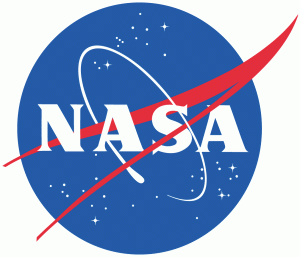The Grand Asteroid Challenge
NASA Press Release:
NASA Sees Enthusiastic Response on Grand Asteroid Challenge
ASA Sees Enthusiastic Response to Asteroid Call for Ideas
WASHINGTON — NASA has received more than 400 responses to its request for information (RFI) on the agency’s asteroid initiative, Deputy Administrator Lori Garver announced Friday.
“Under our plan, we’re increasing the identification, tracking and exploration of asteroids, and the response to this initiative has been gratifying,” said Garver, speaking at the Space Frontier Foundation’s NewSpace 2013 conference in San Jose, Calif. “The aerospace industry, innovative small businesses and citizen scientists have many creative ideas and strategies for carrying out our asteroid exploration mission and helping us to protect our home planet from dangerous near-Earth objects.”
Released June 18, the RFI was the first opportunity for industry and other potential partners, including private individuals, to offer ideas on planning for NASA’s mission to redirect an asteroid for exploration by astronauts and the agency’s asteroid grand challenge.
Garver noted about a third of the responses were in areas relevant to the asteroid grand challenge, which is to identify all asteroid threats to human population and know what to do about them. All other responses were related to the five mission components.
All the responses are being evaluated and rated. NASA will explore the highly rated responses for inclusion in future planning during a public workshop in September.
Grand challenges are ambitious goals on a national or global scale that capture the imagination and demand advances in innovation and breakthroughs in science and technology. NASA’s asteroid grand challenge will support planetary defense by use of multi-disciplinary collaborations and a variety of partnerships with other government agencies, international partners, industry, academia, and citizen scientists.
The asteroid grand challenge complements NASA’s mission to find and capture a near-Earth asteroid, redirect it to a stable lunar orbit and send humans to study it. The asteroid redirect mission is included in President Obama’s fiscal year 2014 budget request for NASA, and leverages the agency’s progress on its Space Launch System rocket, Orion spacecraft and cutting-edge technology development. The mission is one step in NASA’s plan to send humans to Mars in the 2030s.
End Press Release
Some overall points to consider:
According to media sources present at the event, Garver went on to dispute the notion advanced by some in Congress that the asteroid retrieval mission is diverting attention from returning to the Moon. Considering the fact that nothing in the current U.S. policy states that NASA’s goal is in fact, returning to the Moon, one could also argue that is diverting attention from going to Alpha Centauri as well.
Leaving all that aside, the intense opposition to the ARM on the part of Congressional Republicans is in a word, bizarre. While there are anywhere from $20 to $40 billion reasons to be skeptical of the Space Launch System and the Orion Capsule, it is for the most part the same interests who insisted on SLS, in spite of the patently unsustainable costs, who are objecting to using it for one of the few missions which will not require billions of even more expenditures, or as the Administration prefers to call it “investments,” to conduct. Furthermore, it is not as if NASA has in any way suggested that it is planning an ongoing series of missions to various asteroids which might in fact, divert attention from other uses.
The ARM is by all accounts a one-shot mission which will depend on whether or not the agency is successful in capturing and re-diverting a very small asteroid, or loosely bound accretion of materials from a larger one first. If the mission fails in this regard, NASA is arguably no worse off that it would in the alternative case, which is launching SLS/Orion on an almost completely meaningless circumlunar mission.
Absent a major budget increase now, what exactly is that Congress expects SLS to do in the first half of the next decade?



1 Comment on "The Grand Asteroid Challenge"
Trackback | Comments RSS Feed
Inbound Links